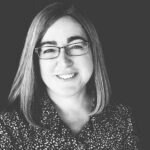By Laura McKillip Wood
As a child in the 1950s and ’60s, Harry Douglass sat in the pew at Mountain View Church of Christ in Phoenix every Sunday morning and Sunday night. He loved church, and he loved listening to his pastor, Don Mitchel, passionately preach interesting sermons. What he really loved, though, was listening to visiting missionaries who stopped in for Sunday night services. They showed slides of the people they worked with and told stories about their lives in faraway places. They not only told of their work but of the need for more people to follow their examples and share the gospel with those who had never heard about Jesus. By age 10, Harry had accepted Jesus as his Savior, and by 12, he decided God was telling him to be a missionary.
Looking back at his childhood, Harry sees how this decision to work cross-culturally made sense. His parents worked for the Bureau of Indian Affairs (now the Department of Indigenous Services). They lived in Window Rock, Arizona, the capital of the Navajo Reservation, the largest Native American reservation in the United States, when he was born. They later moved to San Carlos Apache Reservation, also in Arizona, where they lived among the Apache people.
Growing up, Harry’s friends were Native American children and children of other government workers. He loved the remote, country feel of the reservation—the nearest city, Globe, was a 20-mile, gravel-road drive from his home. More than that, he loved the other children he played with, and he grew to love and appreciate Native American cultures. From early childhood, Harry learned that not everyone lives the same in the United States, and he learned to respect the differences among people.
MINISTRY IN DIFFERENT CONTEXTS
Following his call to ministry, Harry graduated from high school and attended San Jose Bible College, now William Jessup University, in California. He was excited about the possibilities God would open for him, and he was not disappointed. During college, Harry met Lew Cass, a missionary to Brazil. Lew’s testimony eventually led Harry and his wife, De, to take their children, Fred and Bernadine, to Brasilia. They lived for many years in Brazil and even had their third child, Helene, there. When their children were grown, De and Harry joined Team Expansion’s work in Argentina. In 1992, they decided to join OLE, Oregon Latin-American Evangelism, and continue working closely with Team Expansion. Since then, the Douglasses have worked in Hispanic church plants in the Northwest United States and Mexico.
While working with Hispanic people among new churches in the U.S., Harry and De met some Cuban refugees who had escaped the communist island nation; they arrived on boats in the Southern United States. A friend in Oregon had stopped to help some Cubans who were stranded with car trouble. The friend introduced the Cubans to Harry and De, who began studying the Bible with them in their apartment. This small group became a big group, which met for worship in the Douglass home. They eventually established a Cuban congregation, where Harry and De served for almost 20 years. Not only did the Cuban refugee community hear about the gospel through this work, but God opened doors for Harry to make 52 trips to Cuba for discipleship training, evangelism, Bible studies, and practical ministry. Harry and his fellow Team Expansion workers, Eric and Chris Barry, began using Disciple Making Movement (DMM) methods. DMM focuses on organically multiplying disciples in communities. They have led training in this form of outreach in the eastern part of the island twice and hope to continue.
CHALLENGES
COVID-19 has presented many ministry challenges in Cuba, including a lack of medicine, equipment, and facilities.
“Many Cubans have died for lack of care,” Harry reports.
Additionally, it was illegal to congregate in the past year and a half, though house churches continued to minister in small groups throughout the COVID crisis.
“Now that they can meet in larger groups again,” Harry explains, “their faithful ministry to the ill and to those who lacked medicine and adequate food in difficult times has resulted in many more coming to Christ.”
At one recent celebration, 213 people gathered for worship, fellowship, and food, and 15 people were baptized.
Among Harry’s most rewarding blessings has been seeing new leaders rise up in the Cuban Christian community. Even though missionaries couldn’t be physically present for two years during the worst of the pandemic, the people continued teaching, serving, and baptizing new believers. Now they are working on their own and are capable of continuing without outside leadership. They are “faithfully being his servants and a shining light to the communities and government leaders of those communities,” Harry says.
Beto, one of the men in the DMM training class Harry and his fellow workers started, moved to the eastern part of Cuba to begin disciple-making there. He soon was working with two groups, one in the country and one in the town.
“After some months, Armando [Harry’s fellow worker] and I were able to spend time with these people,” he says. “And after some time of preaching and teaching, 23 new followers of Christ were baptized. The next week, 67 were immersed into him one afternoon.” Beto continues to disciple those who made decisions to follow Christ.
THE FUTURE
Harry plans to return to Cuba with Eric Barry and Saul, a Venezuelan coworker, for DMM training in the western side of the island, outside of Havana. Harry’s long-term goal is that Cuban Christians would really commit to DMM principles to help more people learn about Jesus and develop relationships with him.
“Our God continues to work in all kinds of circumstances, through all kinds of faithful disciples of Jesus,” Harry says.


0 Comments